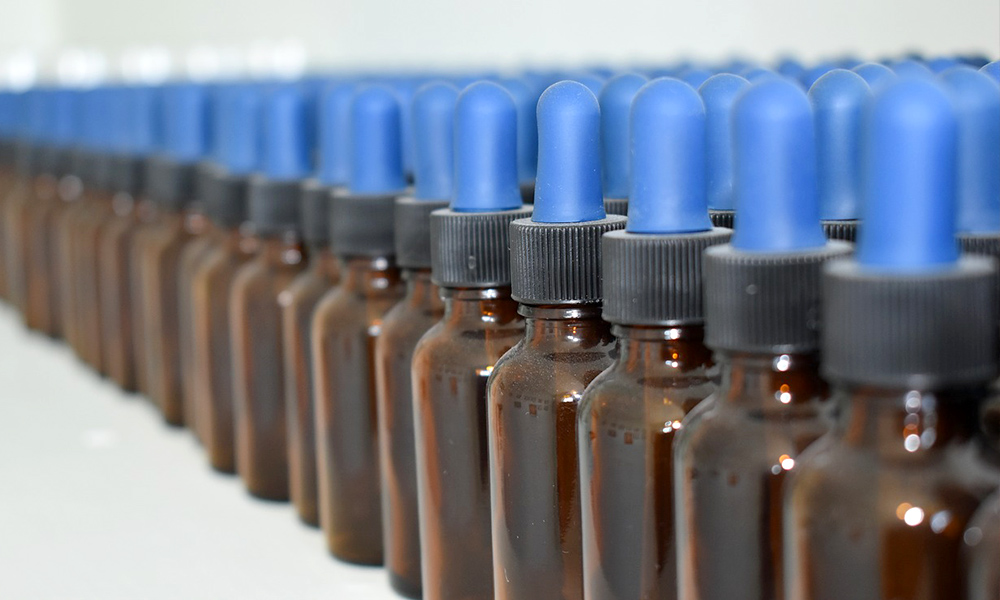 California health authorities dealt a blow to the burgeoning CBD business by banning preparations of the cannabinoid derived from industrial hemp rather than psychoactive cannabis. The diktat adds to the legal confusion around CBD, and highlights the need for greater clarity from the competent authorities at both the state and federal level.
California health authorities dealt a blow to the burgeoning CBD business by banning preparations of the cannabinoid derived from industrial hemp rather than psychoactive cannabis. The diktat adds to the legal confusion around CBD, and highlights the need for greater clarity from the competent authorities at both the state and federal level.
Although winning little media coverage, a recent decision from Sacramento bureaucrats has potentially far-reaching implications for the cannabis industry—and for patients who have come to rely on CBD to treat a wide range of ailments.
On July 6, the California Department of Public Health issued a memo banning CBD oil derived from hemp in the state. The memo asserts that CBD oil derived from hemp is not under the purview of the state’s cannabis regulations.
According to the memo, the CDPH's Food and Drug Branch (FDB) "has received numerous inquiries from food processors and retailers who are interested in using industrial hemp-derived cannabidiol (CBD) oil or CBD products in food since the legalization of medicinal and adult-use marijuana (cannabis) in California."
The memo makes clear that the CDPH's Manufactured Cannabis Safety Branch (MCSB) "regulates medicinal and adult-use manufactured cannabis products," while "food products derived from industrial hemp are not covered by MCSB regulations. Instead, these products fall under the jurisdiction of CDPH-FDB."
It further states that the US Food and Drug Administration (FDA) "has concluded that it is a prohibited act to introduce or deliver for introduction into interstate commerce any food (including any animal food or feed) to which tetrahydrocannabinol (THC) or CBD has been added. This is regardless of the source of the CBD—derived from industrial hemp or cannabis."
And finally, it cuts to the chase: "Therefore, although California currently allows the manufacturing and sales of cannabis products (including edibles), the use of industrial hemp as the source of CBD to be added to food products is prohibited. Until the FDA rules that industrial hemp-derived CBD oil and CBD products can be used as a food or California makes a determination that they are safe to use for human and animal consumption, CBD products are not an approved food, food ingredient, food additive, or dietary supplement."
This memo will doubtless add to the confusion about the legal status of CBD, and the difference between what the memo terms "hemp" and "cannabis." Some explication is in order.
The difference between psychoactive cannabis (“marijuana,” by the increasingly disfavored traditional term) and hemp is a question of THC content—and legal classification. The federal government defines hemp as cannabis with .3% THC or less four weeks prior to harvest. The 2014 federal Farm Bill legalized state pilot programs for hemp, and 35 of the 50 states now have hemp pilot programs—including California. That program is overseen by the California Department of Food and Agriculture (CDFA)—not either the CDPH or Bureau of Cannabis Control.
Earlier this year, the 9th US Circuit Court of Appeals upheld the DEA's classification of CBD as a controlled substance, regardless of whether it is derived from hemp or psychoactive cannabis.
The CDPH memo adds to the confusion by drawing a distinction between "hemp" and "cannabis"—even though hemp is a form of cannabis. If it weren't, you wouldn't be able to derive CBD from it, obviously. Avoiding this confusion is part of the case for not purging the word "marijuana" from the English language, despite the stigma associated with it.
Now, while CBD derived from hemp or psychoactive cannabis ("marijuana") is chemically identical, there may be reasons other than legalistic hair-splitting to make the distinction. If the hemp in question is low in CBD as well as THC, it may take exponentially more hemp than "marijuana" to produce the same amount of CBD (or THC). So this raises concerns about concentrates of pesticides and other contaminants getting into CBD preparations made from hemp—especially hemp that has traditionally been grown for industrial purposes, and under standards developed with that in mind. In the case of places like China, even those standards may be too lax, or not enforced.
In any case, the CDPH decision seems like it may be informed more by legalistic hair-splitting. And to illustrate how finely that hair is split, recall that CBD is a controlled substance under federal law, regardless of what it is derived from. Yet federal policy is also contradictory. The FDA's recent approval of the CBD preparation Epidiolex comes despite the fact that the DEA considers CBD a Schedule 1 substance, with no medical applications. A DEA rescheduling or de-scheduling of CBD would go a long way toward resolving these questions—and is hopefully coming soon.
Cross-post to Cannabis Now
Photo via Pixabay







Recent comments
2 weeks 12 hours ago
2 weeks 19 hours ago
5 weeks 1 day ago
6 weeks 19 hours ago
10 weeks 1 day ago
13 weeks 6 days ago
17 weeks 6 days ago
18 weeks 5 days ago
28 weeks 5 days ago
32 weeks 5 days ago